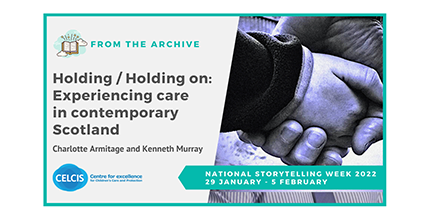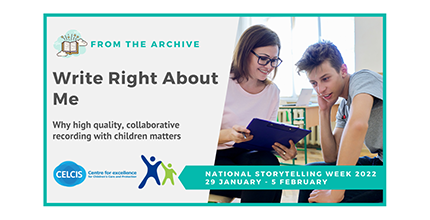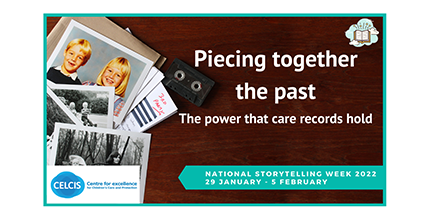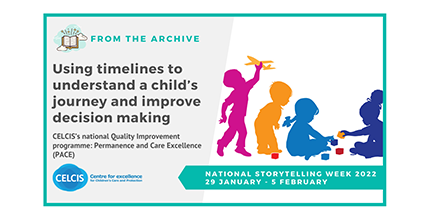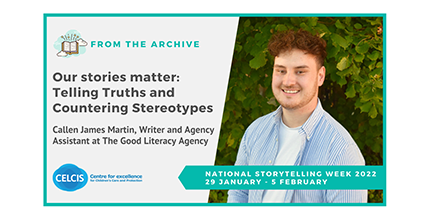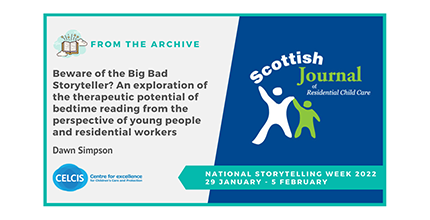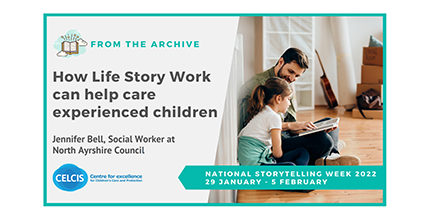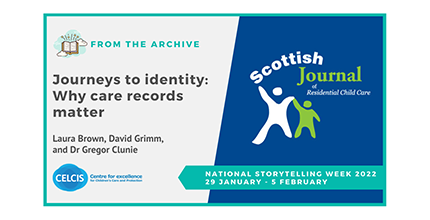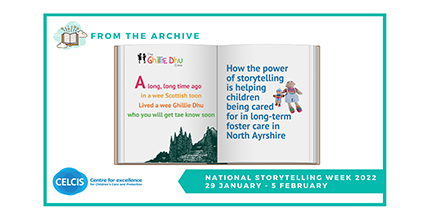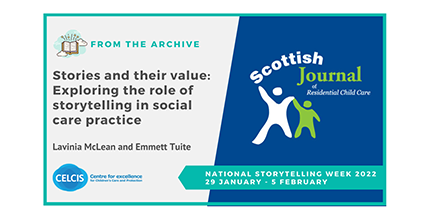
Life is about stories: our story, my story, your story, how we understand ourselves and the world; and storytelling enables these stories to be shared.
CELCIS has put a spotlight on how care experience and children and adults with care experience are represented in culture, the use of storytelling in supporting children, the practice of Life Story Work, and the role of care records in connecting to and understanding personal history and identity.
Take a look at the ways in which sharing stories, owning stories, using storytelling, and listening, matter.
Why care records matter
Why enabling care experienced people to access their full care records in a trauma informed way and with empathy is so important.
Holding/Holding on
Two community collaborators, Charlotte Armitage and Kenny Murray, explain their work on this production by the National Theatre of Scotland, which was inspired by conversations with care experienced young people about their lives.
My journey from care leaver to author
Novelist Kirsty Capes discusses how her childhood experiences led to a career in writing.
Write Right About Me
For SIRCC 2020 Online, we looked at practice in making records during children’s lives in residential child care and how the voices of young people are transforming practice.
Life story approaches and relationships within residential child care
How everyday interaction and routines in residential child care can help to therapeutically explore life stories with children and young people.
Piecing Together the Past
This feature draws together the thoughts of care leavers who have talked and written about accessing and reading their records.
Using data
Can the power of storytelling change lives? Find out how we used experiences and data to develop a timeline tool to visualise the journeys of care experienced children.
Our Stories Matter: Telling Truths and Countering Stereotypes
Writer Callen James Martin reflects on why it’s important for care experienced people to own their stories and why being better represented in creative writing matters.
Beware of the Big Bad Storyteller?
This research brings to life the bedtime reading experiences of young people in residential care, those who care for them, and the impact this has on wellbeing.
Life Story Work
How Life Story Work can help care experienced children to know more about and understand their past.
Journeys to identity
In this article from the Scottish Journal of Residential Child Care, the authors consider their own experiences to discuss why accessing care records matters.
Faerie tales and the Ghillie Dhu Crew
Find out how the power of storytelling is helping children in long-term foster care in North Ayrshire.
Stories in building relationships
This research examines the benefits and challenges of informal storytelling as an approach to help to build relationships with young people in residential care.
Sharing Lives / Sharing Stories
Professor Richard Rose discusses therapeutic Life Story Work and how sharing stories helps to share our interests, hopes and fears.




